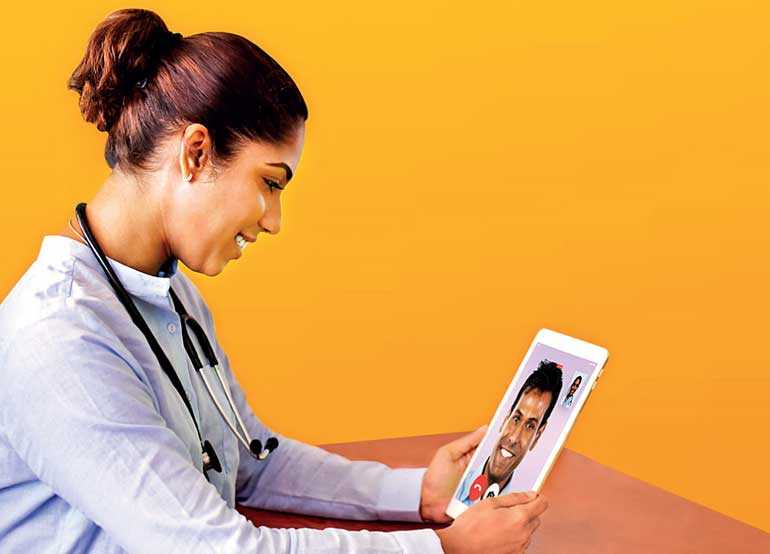Thursday Feb 26, 2026
Thursday Feb 26, 2026
Wednesday, 13 November 2019 00:00 - - {{hitsCtrl.values.hits}}

In recent years, Sri Lanka has made impressive strides in healthcare delivery. One such case has been the rise of telemedicine adoption by doctors, patients, and now, corporates.
The American Medical Association has found that nearly 75% of regular doctor visits can be handled effectively through video or audio consultations. This form of healthcare delivery has gained global acceptance. It is in wide use in countries including the US, the UK, India, Singapore, the UAE and Rwanda. Employers too have been quick to adopt telemedicine as a popular health benefit that boosts productivity, with the majority of Fortune 500 companies offering the service to their employees.
Evidence of growth in the industry in Sri Lanka can be seen in oDoc completing launches at 20 client locations in the past 20 weeks and now covering a total of over 140,000 lives. oDoc, which launched in 2017, is the leading telemedicine solutions provider locally with operations in India as well. They work with a range of companies from corporate offices in Colombo to garment factories in Kanthale and poultry farms in Bangalore. Their clients include IT companies like Aeturnum, growth-stage companies like Daraz, diversified corporates like Aitken Spence, garment factory operators like Crystal Martin and leading Indian companies such as BigBasket. In a major vote of confidence for the industry, AIA Insurance Lanka (part of the pan-Asian insurance giant AIA group) recently partnered with oDoc, to offer telemedicine as a benefit to their policyholders.
Commenting on this growth, oDoc CEO and co-founder Heshan Fernando stated, “Our clients are solving old problems in new ways. Time and money are wasted in getting in front of a doctor. Whether you are from an office in Colpetty or a factory in Wathupitiwala, you find yourself having to leave your workplace when you or a family member needs to see a doctor. This is a hassle to the employee, and it means lost productivity for the employer. oDoc provides free unlimited consultations for employees and their family members for a nominal monthly fee, at a surprisingly competitive price point when compared against the alternatives.
The deployment – and ready acceptance – of virtual health technology has become possible largely as a result of the mass scale proliferation of smartphones with high-speed internet. This has made high-quality video transmission possible. On the oDoc platform, over 200 SLMC-registered GPs and specialists now provide convenient video and audio consultations, meaning patients need to go through the hassle of travel and waiting rooms only when it is absolutely required – in less than 20% of cases.
Elaborating on why he feels more companies are looking to telemedicine, Fernando stated, “All you need to do is to download the oDoc app to your phone or install it in your company sick room. Within minutes you can consult a doctor and get a valid prescription. It sounds simple; however, if not for the service, getting this done would have taken hours. You can also choose to have medicines and lab services brought to your doorstep.” “It’s because of this convenient value delivery and cost savings that we have been able to establish telemedicine as a genuine option for Sri Lankans over the past two years. We have won the trust of both patients and doctors. We are seeing 100s of consultations a month from some of our factory clients. Doctors like paediatrician Dr. Hashir Ariff, and Dr. Haroon Thowfeek, a general practitioner, have done over 1,000 consultations these past three months on the oDoc platform.”
With cases of the service extending from covering common matters like the cold, nausea, stomach bugs, allergies and rashes to providing specialist care in paediatrics, diabetes care, sexual health and mental health, telemedicine services such as oDoc are ushering a revolution in healthcare. What is clear from the growing client-list at oDoc, is that companies are taking note of this revolution to cultivate a caring work environment whilst securing real benefits to their bottom-line.